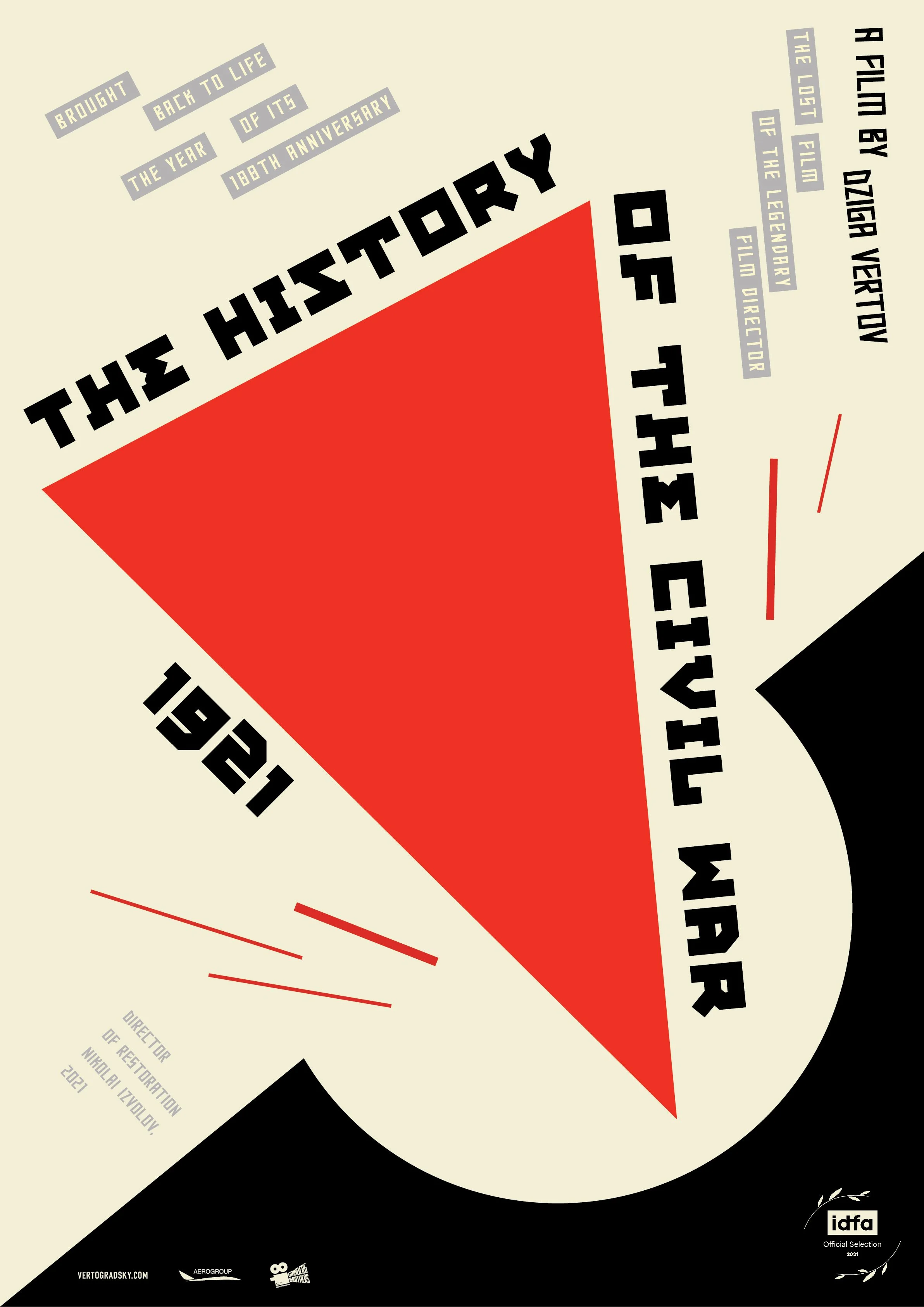The Civil War in Russia (1918–1922) was one of the most dramatic and bloody events in the history of the country, and led to the large-scale emigration of those who did not want to accept the Bolsheviks’ power. It is an especially relevant focus today, when society is once again polarised on many levels due to the Russian invasion of Ukraine. What lessons can we learn by peering into the newsreel of events from a century ago?
Pushkin House, in partnership with Bertha DocHouse, presents the British premiere of Dziga Vertov’s The History of the Civil War (1921). The second film by the father of Soviet documentary filmmaking, it was considered lost but was later rediscovered and reconstructed by film historian Nikolai Izvolov in 2021. It covers the key events and figures of the Russian Civil War, among them Leon Trotsky. Unsurprisingly, the film immediately disappeared after its first screening, becoming a vivid example of Soviet censorship. Today we have an amazing opportunity to see one of Vertov’s early works, preceding his avant-garde masterpieces such as Man with a Movie Camera (1929). Even more importantly, we have before us a unique historical artefact; an impressive record of the events of one of the most difficult and tragic times in the history of Russian society.
The History of the Civil War
Dziga Vertov
Russia. 1921. 94 min.
The UK premiere screening on Sunday 31st July will be followed by a Q&A with film historian Nikolai Izvolov (via Zoom) hosted by filmmaker and critic Alex Barrett.
This event will take place at Bertha DocHouse.
ABOUT THE FILMMAKER
Dziga Vertov (1896–1954, birth name David Kaufman) was a Soviet avant-garde filmmaker, newsreel editor and film theorist. He developed the “kino-glaz” (“film-eye”) concept, claiming that the camera – much like the human eye – should be an instrument best used to explore actual events in real life. His notable works include newsreels (Kino-Nedelia, Kino-Pravda) and avant-garde documentaries or “cine-objects” (Kino-Glaz, A Sixth Part of the World, The Eleventh Year, Man with a Movie Camera). He also contributed to the development of sound cinema (Enthusiasm, Three Songs about Lenin). Vertov’s films and theories have widely influenced the history of documentary cinema.
ABOUT THE SPEAKERS
Nikolai Izvolov is a Russian historian, film theorist, and a specialist in the reconstruction of lost films. Since the beginning of the 1990s, he has been teaching a course on film archives at The Russian State University of Cinematography (VGIK). His books include The Phenomenon of Cinema: History and Theory (2012) and Unknown Pages of Russian Avant-Garde Cinema (2021). He restored Dziga Vertov’s Anniversary of the Revolution in 2018 and The History of the Civil War in 2021.
Alex Barrett is an award-winning independent filmmaker and critic based in London. As director, he has made two feature films, Life Just Is (2012) and London Symphony (2017), both of which were nominated for the Michael Powell Award for Best British Film at the Edinburgh International Film Festival. His work has screened at festivals around the world, and his short films have enjoyed non-festival screenings at venues including the Victoria & Albert Museum in London, and the National Gallery of Art in Washington. More recently, he worked alongside director Andrey Paounov on the screenplay for the award-winning feature January, which is currently on the festival circuit.

